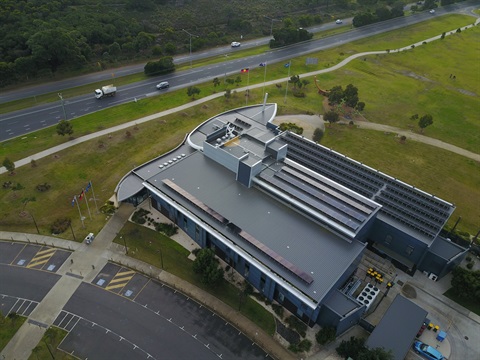
Like a growing number of organisations, Surf Coast Shire Council is moving away from a reliance on paid accredited carbon offsets toward more direct measurable actions that reduce emissions locally.
"Best practice has changed and so must we," Cr Leon Walker said.
"Our focus is now on reducing the organisation's operational greenhouse gas emissions and supporting the development of local carbon abatement projects."
For these reasons, from 30 June 2025, Council will align its Climate Emergency Response Plan 2021-2031 with evolving best practice by ceasing to be a certified carbon neutral organisation.
Funds previously used to purchase non-local offsets will be re-directed to initiatives that reduce the organisation's emissions and support the development of local carbon abatement projects with environmental, social and/or economic co-benefits.
"We remain as committed as ever to reducing organisational emissions and to tackling the climate emergency," Cr Walker said.
"We're focused on reaching our target of zero emissions from all operations, excluding Anglesea landfill, by 30 June 2030."
Cr Walker said there were growing concerns about the credibility of carbon neutral claims, and procuring quality approved offsets is challenged by availability and cost.
"Many other councils and organisations are looking to reduce their emissions and invest in projects with local benefits that promote biodiversity and capture carbon, rather than buying cheaper international offsets to cover their entire emissions."
Anglesea Landfill is Council's biggest emission source, accounting for 70 to 85 per cent of corporate emissions. Landfill emissions can't be eliminated as existing organic material deposited over the life of the landfill operation will continue to emit 'legacy' emissions for over 20 years.
"We're going to concentrate our efforts on reducing other organisational emissions and supporting projects that have local benefits."
Council plans to reduce organisational emissions by:
- Switching its facilities from gas to electric.
- Switching its light fleet of Council vehicles to all electric.
- Replacing appliances that use high global warming potential refrigerants.
Council has reduced its non-landfill corporate emissions by 41 per cent since 2021, which includes:
- Converting all Council operations to 100 per cent renewable electricity, through the Victorian energy collaboration.
- Installing 784kw solar 92kw battery storage on Council facilities.
- Transitioning street lighting to LED.
- Introducing FOGO (food and garden organics) residential waste collection to divert organic material from landfill.
An organisational Emissions Reduction Strategy will be developed for Council's consideration in 2026 following the development of the Council Plan, which is due to be implemented this year.
"We will continue to monitor and review what's going to deliver the best results so we can lead the way to achieve a true cleaner, greener future," Cr Walker said.






